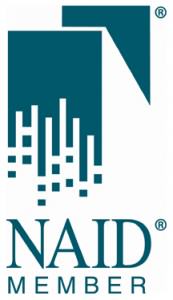
In today’s world, data is everything. Businesses rely on data and information to make informed decisions, develop new products and services, communicate with customers, and much more. However, with this reliance on data comes the risk of data breaches, cyberattacks, and other security threats that can compromise the privacy and security of sensitive information.
As a business owner, you’re responsible for protecting your company’s sensitive data and keeping it safe from unauthorized access. Here, we’ll explore some essential tips for safeguarding your sensitive business data.
1. Implement Strong Password Policies
Passwords are still a critical line of defense when it comes to protecting your data. Strong passwords that combine lowercase and uppercase letters, numbers, and special characters are essential. You should also consider implementing two-factor authentication (2FA) to add an extra layer of security. 2FA requires users to enter a code sent to their phone or email in addition to their password.
2. Train Employees on Data Security
Human error is one of the most significant risks to your business’s data security. When people make mistakes, they can put important data at risk. Educate employees on the importance of data security and how to recognize potential security threats like phishing emails and suspicious links. Regular training sessions on data security best practices can go a long way in keeping your sensitive data safe.
3. Use Encryption
Encryption is the process of encoding sensitive information to make it unreadable to anyone who doesn’t possess the decryption key. Using encryption for sensitive data like customer data, financial information, and intellectual property is a must for modern businesses. There are many encryption software tools available, both free and paid, that can help safeguard your data and keep it from getting into the wrong hands. A reliable hard drive destruction service will properly scrub your data from old devices when they’ve reached the end of their lives.
4. Back Up Data Regularly
Regular backups are essential due to the possibility of security breaches or data loss. This means you should have a backup strategy that includes local and cloud-based storage options. It’s possible to quickly restore local backups in case of hardware failures. Cloud-based backups provide additional redundancy in case of a localized disaster.
5. Keep Software Up to Date
Software updates often contain security patches that fix known vulnerabilities. If you ignore updates, that can lead to an increased attack surface. Keeping software up to date should be a standard practice in any business. Be sure to update all software applications, including operating systems, web browsers, and productivity suites.
Protect Your Business From Data Leaks
Data security is critical to the success and survival of any business in today’s digital age. These tips should help you safeguard and protect your sensitive business data from potential security threats. Remember to implement strong password policies, train your employees on data security, use encryption for sensitive data, back up your data regularly, and keep your software up to date. With these measures in place, your business can stay safe, secure, and prosperous.






